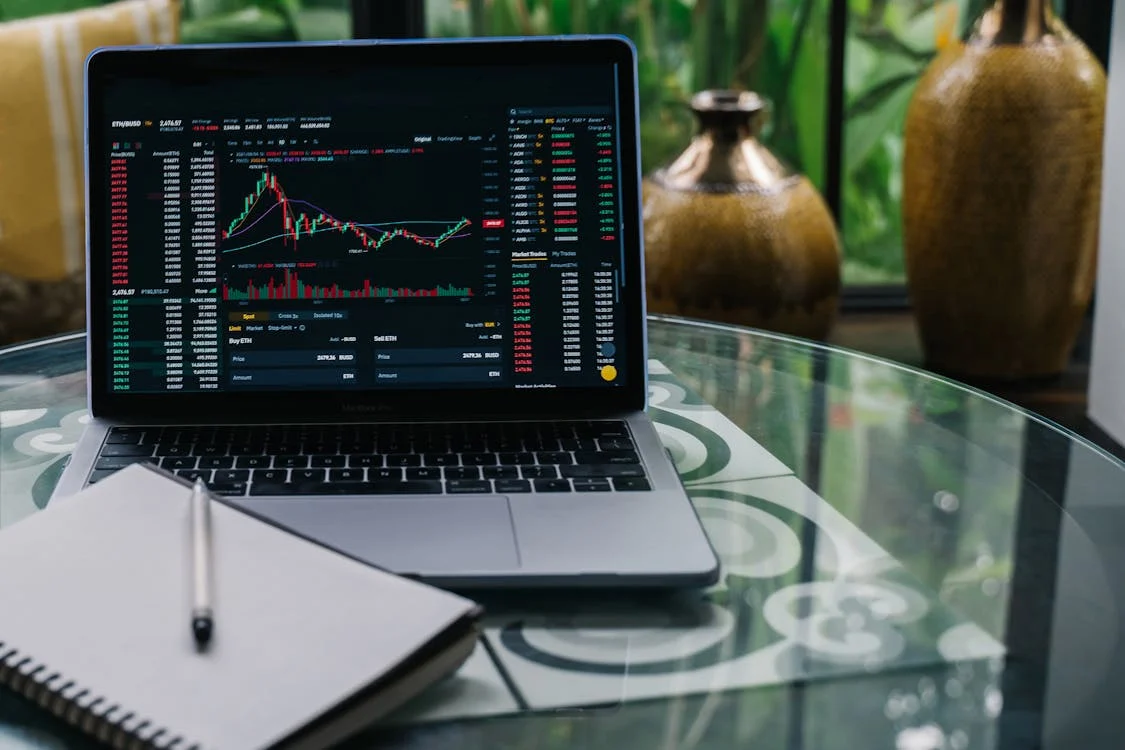Introduction
The DAX 40, one of Europe’s leading stock indices, provides valuable information about Germany’s economic health and the performance of its leading companies. Since its expansion from the DAX 30 to the DAX 40, the index has become a major player in global finance. Knowledge of the DAX 40 is essential for those interested in European and global stock markets, especially in the financial technology sector.
Whether you are an investor, financial analyst or simply interested in economic trends, the Fintechzoom.com Dax40 contains essential information about some of the largest and most influential German companies. This guide will explore the DAX 40, its meaning, how it works and why it is a critical part of the German and European financial landscape.
What is DAX 40?
The DAX 40 is a German stock index comprising the 40 largest publicly traded companies on the Frankfurt Stock Exchange. It offers a wide selection of industries, including financials, healthcare, technology, consumer goods and more. Originally launched as the DAX 30 in 1988, the index expanded to include ten more companies in September 2021 and became the DAX 40.
This expansion was intended to make the index more representative of the German economic landscape by including a wider range of industries, giving investors a more comprehensive picture of the German economy.
The companies within the Fintechzoom.com Dax40 are market leaders in their fields, not only in Germany, but also on a global scale. Companies such as SAP, Siemens and Volkswagen are known worldwide, making the DAX 40 an indicator of domestic and international economic strength.
For up-to-date information on the DAX 40, you can visit fintechzoom.com dax40, a platform offering insight into the trends, analysis and movements of the DAX 40 stocks.
Why the expansion from DAX 30 to DAX 40?
The decision to expand the DAX from 30 to 40 companies was driven by multiple factors, including the need for greater industry diversity and the desire for the index to better reflect the dynamic nature of the German economy. The expansion allows companies in high-growth sectors such as healthcare, renewable energy and technology to join established industry giants.
This restructuring also brings the DAX closer to other global indices, such as the S&P 500 in the United States and the FTSE 100 in the United Kingdom, which have a more complex composition. With a wider range of sectors, the fintechzoom.com dax40 is more resilient to market fluctuations as it is less dependent on a few dominant sectors.
The expansion also reflects Germany’s commitment to modernizing its financial markets and ensuring that the DAX remains competitive in the global economic environment. This broadening of scope helps investors diversify within the index itself as they are now exposed to a wider range of sectors and opportunities.
Key components of DAX 40
The DAX 40 includes companies from various sectors, but some sectors are particularly significant:
- Germany’s automotive industry, known for brands such as Volkswagen, BMW, and Daimler, plays a significant role in the DAX 40.These companies are key not only for the German economy, but also for the world automotive scene.
- Technology and software – SAP, the global leader in business software, has been a long-term fixture of the DAX. The inclusion of more technology companies added diversity to the index and recognized the importance of technology in modern economies.
- Pharmaceuticals and Healthcare – Companies like Bayer and Fresenius are key players in the healthcare sector. The expansion of the DAX 40 included more healthcare companies, recognizing the growth of the sector and its importance during events such as the COVID-19 pandemic.
- Financial Services – Deutsche Bank and Allianz are the two main financial institutions in Germany and their performance often reflects broader economic trends. These companies offer insight into the financial health of Germany and Europe as a whole.
- Industrial production – Siemens and BASF are examples of industrial giants in the DAX 40. The index well represents Germany’s reputation for high-quality industrial production, showcasing the country’s engineering and manufacturing capabilities.
How the DAX 40 is calculated
The DAX 40 acts as a performance index, meaning it includes dividends reinvested in the index calculation. The calculation of the index takes into account the free movement of each company’s shares and their market capitalization. This method provides a realistic representation of the total value of the companies included in the DAX 40, taking into account both share price movements and dividends.
Changes to the Fintechzoom.com Dax40 are based on a review carried out every September. This overview takes market capitalization and trading volume into account and ensures that the index accurately reflects the most important and actively traded German companies. The index maintains its integrity and relevance by removing companies that no longer meet the criteria and replacing them with others that do.
Why the DAX 40 is important for investors
Investors around the world closely watch the DAX 40, a key indicator of economic performance in Germany.For those looking to invest in European markets, the DAX 40 offers a diverse mix of stable, large-cap companies across key industries.Additionally, companies in the index actively engage in global markets, offering investors exposure to international business trends.
- Germany’s automotive industry is renowned worldwide, with brands like Volkswagen, BMW, and Daimler playing significant roles in the DAX 40. These companies are crucial not only to the German economy but to the global automotive landscape.– As Germany’s leading stock index, the DAX 40 serves as a barometer for the broader European economy. A rising DAX 40 generally indicates economic growth, while a falling DAX can signal economic problems.
- Diversify portfolios – With a wide range of sectors, the DAX 40 allows investors to achieve diversification within a single index. The presence of companies in the technology, automotive, healthcare and financial sectors offers stability during industry downturns.
- Monitoring market trends – DAX 40 companies are global leaders and their stock movements often reflect larger market trends. For example, the movements of technology stocks on the DAX 40 can indicate similar trends in technology markets around the world.
For daily updates and in-depth analysis, fintechzoom.com dax40 offers investors the tools to track this index and make informed decisions.
How to invest in the DAX 40
You can invest in the DAX 40 in several ways:
- ETFs – Exchange-traded funds (ETFs) that track the Fintechzoom.com Dax40 allow investors to gain exposure to the index without buying individual stocks. DAX ETFs are popular with investors looking for diversified, low-cost exposure to German companies.
- Individual Shares – Investors interested in specific sectors or companies within the DAX 40 may choose to invest directly in individual shares. This approach allows for more control but can bring more risk compared to ETFs.
- Mutual Funds – Some mutual funds focus on European or German stocks, offering exposure to the DAX 40 alongside other assets. This can be a good option for long-term investors looking for a professionally managed investment.
- CFDs and Derivatives – For those interested in more advanced strategies, contracts for difference (CFDs) and other derivatives based on the DAX 40 can provide leveraged exposure. However, these instruments are more complex and suited to experienced investors.
Conclusion
The DAX 40 is an essential tool for understanding both the German and European economies, representing the performance of Germany’s most prominent and influential companies. With a well-diversified portfolio across various sectors, the index offers a comprehensive view of German economic strength and resilience. Since the expansion from 30 to 40 companies, the DAX 40 has only grown in relevance, making it a must-watch index for global investors.
For more information on the DAX 40, including real-time updates, sector analyses, and investment strategies, visit fintechzoom.com dax40, where you can stay informed and make strategic decisions based on the latest market insights.










